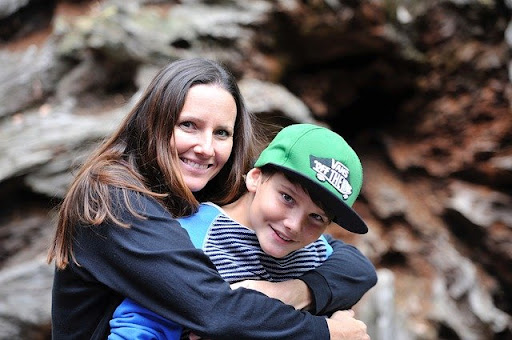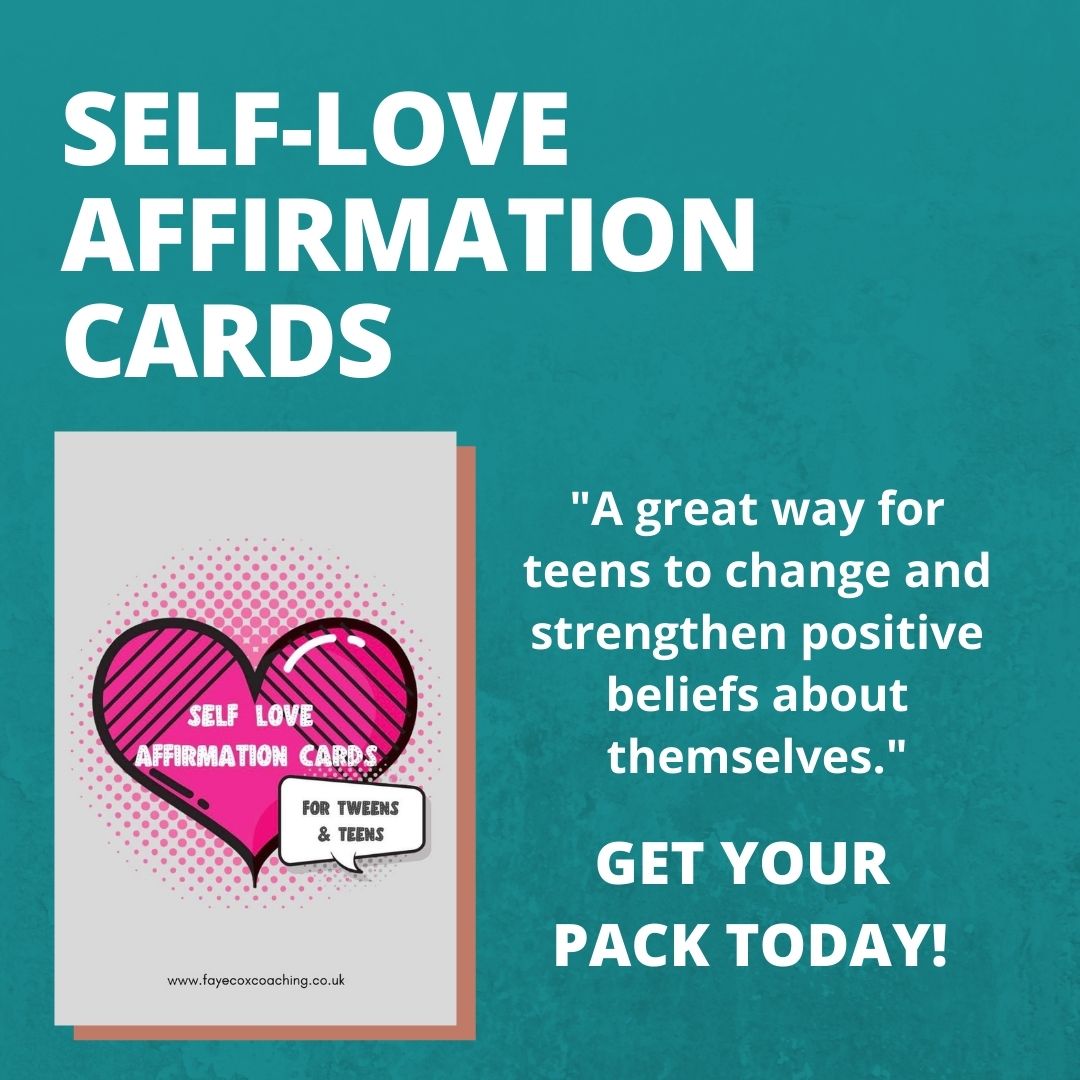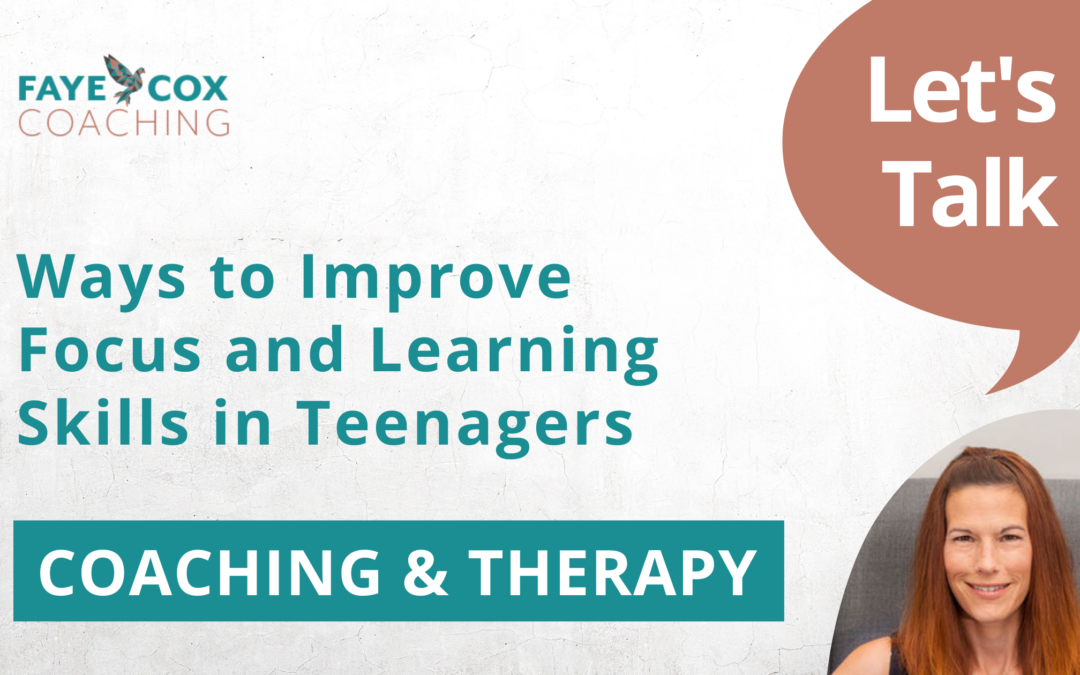
by Faye Cox | Nov 20, 2022 | Anxiety, Family, Parents, Teens, Tips
You may have noticed that there are some days when your teenager comes home and tells you everything about their day. They’ll be feeling motivated, have clear focus and can tell you some of the things they learnt that day. On other days, however, you’ll get grunting, vacant looks and you may even feel like they can’t even hear you talking at all.
These days can feel difficult for both of you. They may come home and genuinely not remember much of what’s happened in their day. It’s not deliberate so please don’t take it personally. It may be that your teenager has something else going on that is consuming their minds or their attention has been focused elsewhere for some reason.
We all know that if something really catches our interest then we will shift our entire focus to it, but if it’s not a subject we’re fully invested in then we can lack focus and attention for any length of time and it’s no different for our teenagers. In fact, with everything that’s going on in their everyday lives, including their brain development and hormones, it’s no wonder that some days they’re a little all over the place.
Having worked with teenagers for many years now I am here to support you to support them in the best ways you can and here are some ways to help them improve their focus and learning skills.
These will also help those with ADHD.
Keep the following points to hand when your teenager is doing their homework and needs to fully focus
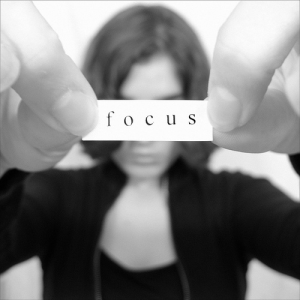
Create a distraction-free space for their learning
Make a designated space where your teenager knows they can go and do their homework in peace. Having a specific space enables them to take themselves away, whilst letting everyone else know that it’s time for them to focus and get on with their work.
Create a space that is well ventilated and lit, ideally with natural light if possible and away from everyone else so there is less noise from the TV or other family members. Your teenager may find white noise effective for helping them focus. Certain music playing quietly can also assist focus. Having one ear-pod in whilst working can be useful. This is one I see a lot with the teenagers I work with.
Be sure to put any other devices, gadgets, computer games and any other distractions away from your teenager at this time. These can become a huge distraction if within their eye line.
Once that task is over, encourage your teenager to put away everything that they have used before starting the next task and then get out everything they need for the next task. This way they only have what they need within their eye line.
Give your teenager a drink and some snacks to see them through and keep their blood sugar level up and to make sure they are hydrated whilst they work.

Grounding before homework
Before your teenager begins their homework, they can do a quick and highly effective grounding meditation to help prepare them for learning.
Grounding is an amazingly effective method to help clear the mind of any clutter that may be hanging around from the day. You can do this with them if you like as you will both benefit from it as it will also help to rid you and your teenager of any stress or tension you may be holding on to.
Here is a simple grounding meditation for you both to try.
- Sit down on the floor with your legs crossed
- Close your eyes and focus on your breath
- Simply notice the inhale and exhale of your breath
- Then make the inhales and exhales a little longer and deeper
- Feel yourself connect with the core of the earth and feel a complete sense of grounded-ness whilst picturing yourself as a tree with vast roots that are growing and reaching the centre of the earth.
- Bring your awareness back to the breath
- Take 3 long and deep inhales and exhales and come back to your awareness of the space around you
- Count to 5 and open your eyes
Notice how calm and grounded you feel ready to focus

Always set realistic goals for learning
Support your teenager to break down their tasks into manageable chunks and even use a brain dump to help them start a new task. Many people find starting a new task and transitioning between tasks difficult, so using a brain dump can help to get everything out of their head so they can break down what needs doing and how. This will free them from the overwhelm of it all.
Encourage your teenager to steer well clear of multi-tasking as this will escalate their overwhelm and create stress and anxiety. Plus, they won’t be able to do any of the tasks well and one task done well is worth more than two or three tasks done badly.
Use a planner to plan out homework with dates of when it will be completed by. Have set days and times as this will encourage good routine when it comes to learning.
Make sure that they are taking regular breaks from learning as this will increase productivity and focus. I encourage my teenagers to use the Pomodoro technique which involves full focus for 25 minutes and then a 5-minute break. Find what works best for your teenager as different things work for different people.
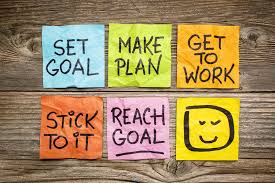
Remember that everyone is different, and these are just a few suggestions from my experience of working with teenagers who struggle with focus, anxiety and overwhelm when it comes to schoolwork and homework. These strategies have been very effective over the years. If your teenager is struggling in any of these areas, you can arrange a call with me to see where I can further support them.
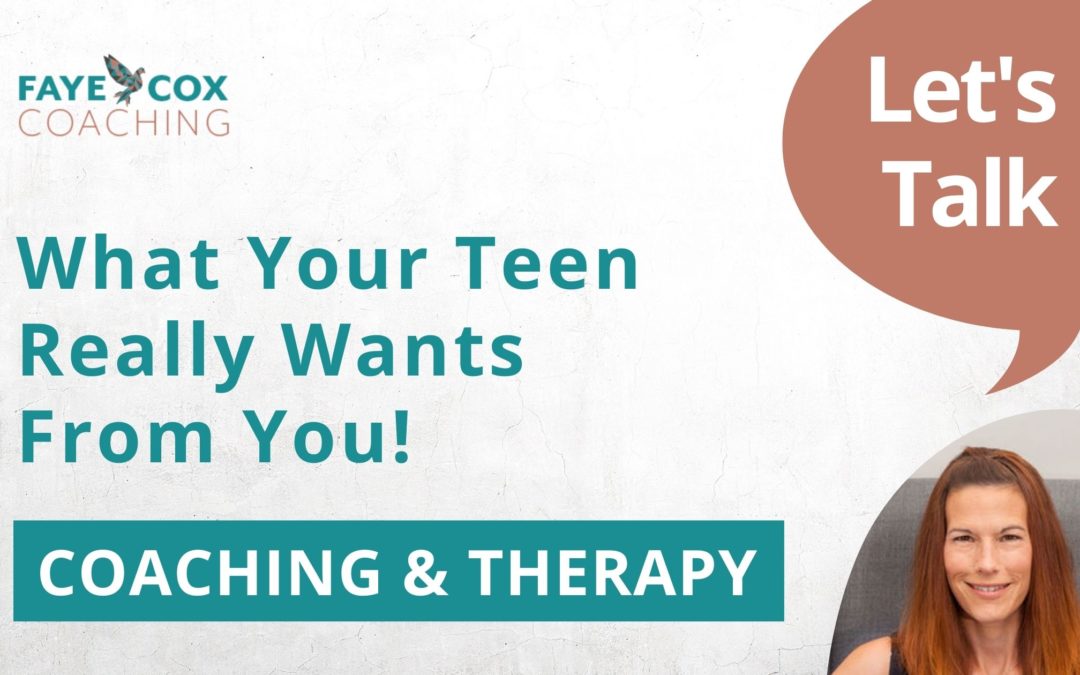
by Faye Cox | May 30, 2022 | Coaching, Family, NLP, Parents, Teens, Therapy, Tips
What your teen really wants from you
What your teen really wants from you is for you to listen and understand them. This blog explains how your teenager’s mind works and what they really want from you. Including helpful tips, resources, and NLP exercises to help you shift your perspective and improve communication with your teen.

Why are you here?
I’m guessing it is because you’ve either reached the end of your tether with your teen? Or you want to make sure you’re supporting them in the best way you know how? Or even BOTH?
Hopefully this blog will help you to start making some progress towards understanding what your teen really wants from you.
Meeting their physical and emotional needs
I have been working closely with teens and their parents for some years now, both one-to-one and in groups, in both an education setting and in their own personal space. I have seen the effects that a teens’ education and mental health is having on their daily lives.
I’ve worked with teens and young people with high anxiety, anger, low self-esteem and confidence, dyslexia and ADHD and they all have one thing in common and that is to have their basic physical and emotional needs met and feel fully supported in a way that they feel in control of their own lives!
How a teenagers mind works
Firstly, in understanding what your teen really wants from you, I want to give you some background on how a teenagers and young persons mind works, so that both you and your teenager can better understand why they do the things they do.
It is important to be aware of where your teenagers brain development is at, which makes it easier to understand their behaviour and thought processes.
As a result your teenager may seem incredibly grown up and sensible one minute and then the next seem completely illogical and impulsive. Almost like they’ve been replaced by aliens.

Brain development
Between the ages of 0-7 is the key stage of a child’s positive brain development, where they form their early belief system. Children are like sponges they take in everything that goes on around them.
The next development phase is when they hit puberty, this is different for each child, but in general it’s around 11-12 years of age, and continues until the mid 20’s.
As adults our pre-frontel cortex is fully developed allowing us to think rationally, understand consequences, solve problems and control our impulses. Before the age of 25, we rely heavily on our ‘amygdala’ to solve our problems and make decisions. This part of the brain is associated with our emotions, impulses, aggression and instinctive behaviour.
Supporting teens and young people
Having spoken and supported many teenagers and young people over the years I am here to support you, to support them.
I’m not ashamed to admit that I got it massively wrong with my step-son. When he turned into an alien overnight I didn’t understand, I didn’t even try to. I let my ‘EGO’ get in the way (The EGO is a whole topic all on it’s own and one I support parents with in my coaching).
I didn’t change my parenting style to adapt to his needs and as a result we disconnected for far too long and if I could go back and do it differently, knowing what I know now, I would!
There are a few key things that your teenager wants from you
- For you to keep them safe. This is the number 1 basic need of all humans. They want you to remind them of the dangers with love and kindness instead of judgement and frustration.
- To show them love and support even when they’re in alien mode.
- To know you’re on their side and haven’t forgotten how tough those teenage years are.
But, the biggest thing your teenager or young person wants from you is… YOUR EARS!!!!
Yes, that’s right. The biggest thing they want from you is for you to listen, and I mean really listen. Listen to understand, not to reply, lecture, tell them they’re wrong.
Listen and Understand, without judgement
They want you to step back into their world and listen as if you’re there with them, sitting alongside them whilst they navigate this difficult and confusing time. To accept who they are, not what you think they are or want them to be.
They want to be heard and respected for having their own opinions in life. They want your FULL attention when they speak about what’s going on for them. They want to know that you GET IT and can see things from their perspective.
How to gain a better perspective
In this video I teach you a great NLP exercise that will help you to see another persons point of view in any given situation. Gaining better perspective can build confidence in all areas of your life, be it your relationships with your partner or kids, or in the workplace with colleagues or employees.
Meet them where they are
As adults we judge situations through our adult brain (the pre-frontel cortex) but in order to be fully present and connected with your teenager, you need to go back and meet them where they are – Why am I repeating this? Because it’s the key to staying connected.
The teenage years are about standing beside them and using a gentle hand to guide rather than leading them from the front like you would a younger child.
Let your teenager lead the way. Keep communication light and flowing. Remember the teenage years through their eyes not yours as an adult.
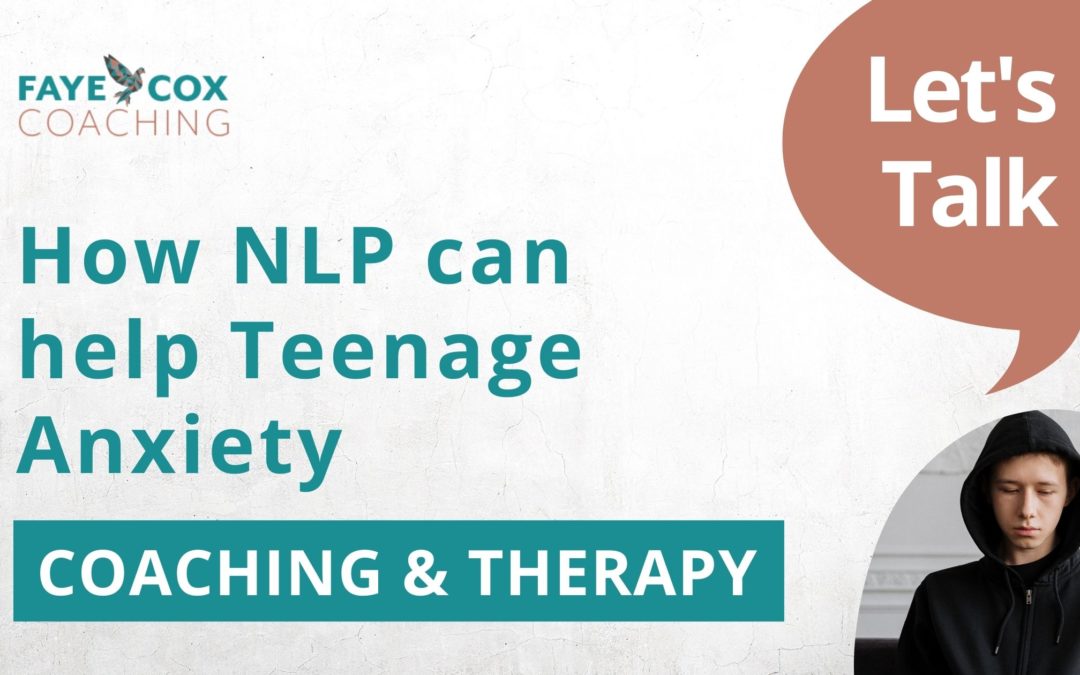
by Faye Cox | May 6, 2022 | Anxiety, Coaching, Family, NLP, Parents, Teens, Therapy, Tips
How NLP can help Teenage Anxiety
NLP can help Teenage Anxiety: NLP helps teenagers experiencing anxiety to gain change old thought and belief patterns and create new ones.
NLP helps teenagers experiencing anxiety to gain access to the unconscious mind, change old thought and belief patterns and create new ones. Ones that will support us to thrive in all aspects of life.
What is NLP
Firstly you may be wondering what NLP is and until I started my own research into Young People’s behaviour I was wondering the same thing.
NLP stands for Neuro Linguistic Programming and is the study of human thought processes. The language that we use to communicate our ideas and emotions as well as the behaviours we present based on our individual programming and unconscious mind.
NLP helps teenagers experiencing anxiety to gain access to the unconscious mind, change old thought and belief patterns and create new ones. Ones that will support us to thrive in all aspects of life.
Why is NLP Important?
Our entire life depends on the way we think and act and we do this in relation to our unconscious mind which is filled with thoughts and beliefs from the very moment we are born.
Not only does this affect us, but we also pass this programming down to our children in the way that we communicate and interact with them.
NLP will help you and your teenager to become aware of those thought patterns, recognise the behaviours that present as a result and will allow you to create new thoughts and behaviours as a result.
Watch my YouTube video for Five Quick Tips to Change your Thoughts.
What causes teenage anxiety?
Our teenagers can develop anxiety for many different reasons, such as:
- Exam stress
- Feelings that they are failing at school
- Being bullied at school or online
- Changing schools
- Moving home
- Lack of movement such as exercise
- Feelings of isolation
- Failing tests or exams
- Conflict between parents
- Feelings of not being good enough – the need to be perfect
- Injury
- Illness
- Feeling unloved
- Abuse
- Death of a loved one
- Sibling rivalry
- Lack of confidence
- Constant worrying about the future
- Conflict within friendships
- Comparing themselves to their peers
- Feeling big and new emotions
- Feelings of detachment from family and friends
As you can see there are a lot of things that can trigger anxiety in our teenagers and as a result, as parents we need to be looking out for the signs that our teen may be experiencing teenage anxiety.
As we learn these signs we are better equipped to support our teenagers when things get tough.
As time goes by you will be able to pick up on their anxieties a lot quicker and be ready to help and in turn they will recognise the signs sooner themselves and will be more comfortable asking for your help.
How to spot the signs of teen anxiety
To help, here are some of the signs that your teenager may be experiencing anxiety
- Constantly worrying about things that haven’t happened yet or that may happen.
- A rapid heart rate
- Breathlessness or shallow breathing
- Hot flushes or even feeling unusually cold
- Sweating
- Shaking
- Feelings of dizziness
- Lack of motivation
- Clinginess to either or both parents or caregivers
- Regular nightmares
- Feelings of irritability and mood swings
- Lack of self-esteem and confidence
- Trouble sleeping
- Unable to relax
- Reduced interest in school or other activities they usually love
- Lack of focus
- A dip in cognitive abilities(unable to think clearly or be able to do simple tasks)
- Compulsive behaviours which appear when their anxiety presents itself
NB: These symptoms can also run alongside a medical condition so it’s always best to get any medical conditions ruled out by a GP.
Create a safe space for your teen
When your teenager is experiencing anxiety it can be tough on all the family and the key to being able to support them is by understanding where it comes from and open up communication with them so that they feel safe.
Our number 1 need as a human being is to feel safe in any given moment. So when they are experiencing anxiety, ask yourself ‘Do they feel safe?’ if not, create a safe space for them so they can de-escalate.
A teenager who is escalated through a big emotion is not going to be in a place to talk about their feelings until they feel safe and ready.
Don’t take it personally if they aren’t ready at that moment to share. Creating that safe space will mean more than you realise.
Whilst creating that space where your teenager knows you are ready to allow them to be seen and heard. It’s always a good idea to refrain from using words like:
- You should
- You have to
- You must
- Just relax
- You’re just thinking negatively
- You’re just overthinking things as always
- It’s all in your head
- You worry too much
NLP techniques for Teenage Anxiety
Try some of the following NLP techniques. Not all techniques work for everyone, so I always suggest a few.
Affirmations
A great way to use NLP is in practicing Affirmations. Affirmations are a powerful tool to use with young people.
They can help to support them in rewiring their negative thoughts about themselves or a situation, and relieve their anxiety around them.
I use these when I’m working with young people, and I see some fantastic results. I have even created my own deck of cards inspired by the common issues that I see every week. See my online shop
These affirmations influence the unconscious mind in a positive way. I always recommend that you choose ones that are most relevant to what is going on for your teenager at that time.
Put these affirmations somewhere they will see them each and every day, on their mirror, in their lunch bag, as an alert on their phone. There are lots of ways you can use these positive unconscious statements.
For example: we can reframe their negative thinking about an exam, by switching sentences such as ‘I am going to fail’ into ‘I am going to give it my best shot’ or ‘I always do my best and today that is what I’m going to do’.
As parents we can support them by watching our own language. Both with our teenagers but also with ourselves.
Remember they look to you for guidance, so if you’re speaking negatively to yourself then you are showing them to do the same and then reframing will become harder.
How are you currently speaking to yourself and how can you change so that you are modelling the behaviour you want to see from your teenager.
The ‘As If’ technique
This is a good NLP technique for supporting your teenager as it uses their imagination and even in those teen years their imagination is still strong and we can tap into that.
If you find that your teen is unable to calm themselves down, firstly take them through a couple of breathing exercises (more on that in my next technique).
Once they are feeling calmer and ready to accept suggestions, ask them what it would be like if they were able to do, feel or have what they needed? How would they feel once they are able to move past the fear and achieve the desired outcome?
Ask them to tap into their sense of feeling, seeing, hearing, smelling and even tasting. This will support them to alter their emotional state and ease those feelings of anxiety.
It allows them to imagine how things could be if they allowed themselves to see the situation in a more positive way.
Breathing
Now this one is the simplest of all techniques, but it’s so underestimated especially by our young people.
If we can teach our teenagers the power of their breathe in any given moment and how it allows them to bring themselves back from the anxiety that is driving them to the present moment where there is nothing to fear.
One of the simplest breathing techniques is the 4, 4, 4, 4 box breathing which I use regularly. It’s as simple as slowing down the breathe and counting to 4 as you breath in, hold your breathe for the count of 4, then breath out for the count of 4 and hold for the count of 4.
Quite simply repeat until you are back in the present moment and your heart stops racing and you can regulate yourself. This can take some time and that’s OK.
This is always my go to and one that my own kids use when they feel any kind of fear or anxiety. We breathe together for as long as it takes.
This helps you to create that safe space that I was talking about earlier.
Breathing with them in this way creates connection and within that place of connection your teenager will feel safer and more ready to talk about what their worry feels like.
Grab your Free Anxiety Resources
I hope you have found this article useful in understanding how NLP can help teenage anxiety. And that you feel able to implement some of these techniques with your teenager and even yourself.
There are many other NLP techniques that can be used when dealing with teenage anxiety and you can find out more of these by grabbing your FREE Anxiety resources.
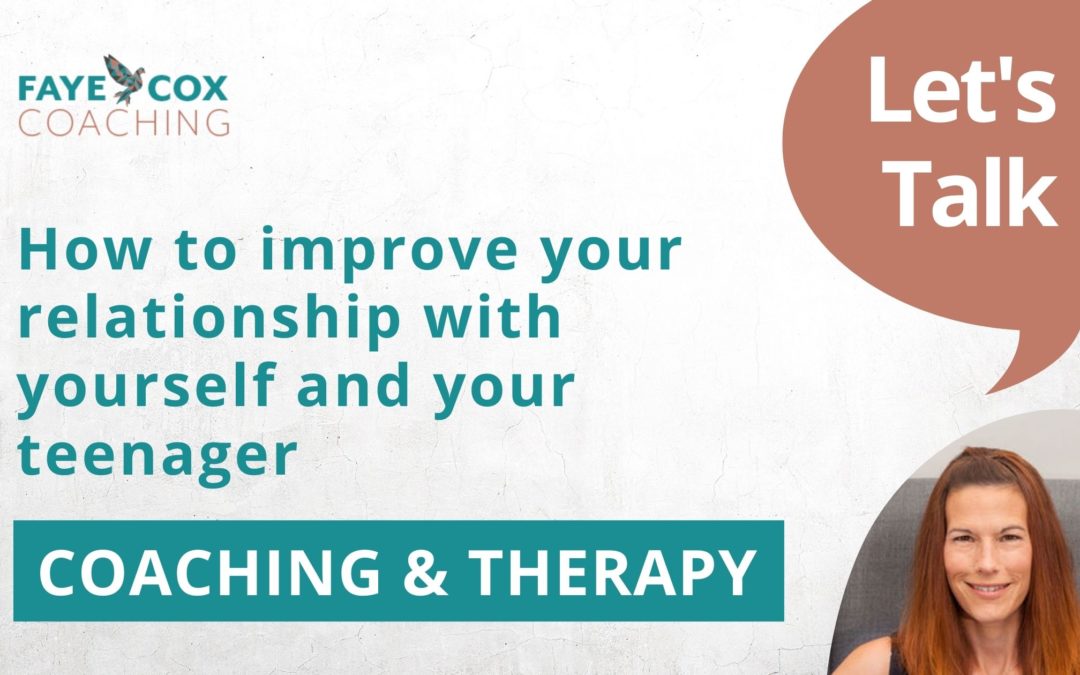
by Faye Cox | Apr 22, 2022 | CBT, Coaching, NLP, Parents, Teens, Therapy, Wellbeing
How to improve your relationship with your teenager?
As parents, we want quick, practical, and affordable and effective solutions. Coaching and therapy may seem like it is not, a quick or affordable solution but I’m here to explain why it absolutely is.
Many parents ask themselves these questions
How do I improve my relationship with my teenager? How can I communicate better with my teenager? How to parent a rebellious teenager? How to parent a teenager with depression? How to parent a teenager with Anxiety? How to parent a teenager with ADHD?
There’s so much information and advice out there, but it’s not always that helpful. Some methods will work for some and not for others.
My NEEDS audit sessions are designed to help you answer many of these questions, helping you to reconnect with your teen find the best solutions to overcome any stress and anxiety that you and your teen may be experiencing.
Working with me will improve your relationship both with yourself and your teenager
When most people think about coaching and therapy, they want to know what the benefits are. What exactly are they going to get for their money?
We know that when we purchase something completely tangible we’re getting a physical product or a visible service, but when it comes to coaching and therapy as humans we need to be able to see and feel the results, and most of the time we want to see and feel things FAST.
Well, I can tell you that working with me will enable you to see and feel change FAST. It would be wrong of me to say that results happen overnight because they don’t, but what they do, is create long-lasting change that can and will start from the very first session.
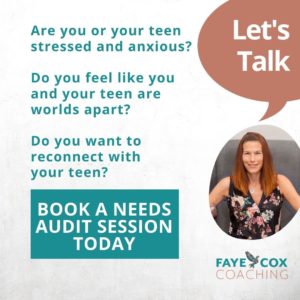
How do we work together?
Whether I’m working with you or your teenager or working with you together, my aim is always to give you a FASTER, deeper and longer-lasting effect.
We conduct a NEEDS Audit which brings huge insight into where you and your teenager are now, and where you’d like to be.
It also provides me with the foundation of our working relationship. This is where I will gather the information I need to support you in creating that long-lasting change. This forms the framework for the rest of our time together.
Then we go deeper into some of the unmet needs from the audit and put together an action plan. As well as putting some strategies in place you can use at home and even within school if needs be.
This is done through a series of 6 sessions, where I will carry out some sessions individually and some with you both. In the last session, I will bring you back together to talk through how things are going, and see where there may still need to be some suggestions and work.
What do you get from me?
During our time together, you get full access to me via WhatsApp and email for any queries or support needed in between sessions.
You will also receive a copy of each of my journals and a set of affirmation cards designed specifically for tweens and teens.
You will deeply benefit from going through the cards and exercises within the journals with your teenager as this will deepen your connection and communication even further.
You also get the benefit of my vast experience of working with teenagers and parents together, as well as my knowledge of using Coaching, NLP, and CBT effectively with this age group.
How long do we work together for?
We work together for 3 months, starting with the NEEDS Audit lasting 90 minutes, which is followed by 6 further sessions lasting approx. 60 minutes.
How much can I expect to pay to work with you?
I pride myself on offering affordable services as I believe that every young person and their family deserves to thrive.
I also offer affordable resources in my online shop such as my journals and affirmation cards, as well as some free resources.
For that, you will receive a FAST and long-lasting change to both yourself and them, whilst also creating a deeper connection through better communication.
Get in touch
If you have any further questions please call: 07968381793 or email faye@fayecoxcoaching.co.uk









